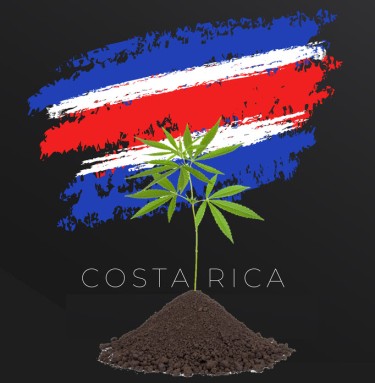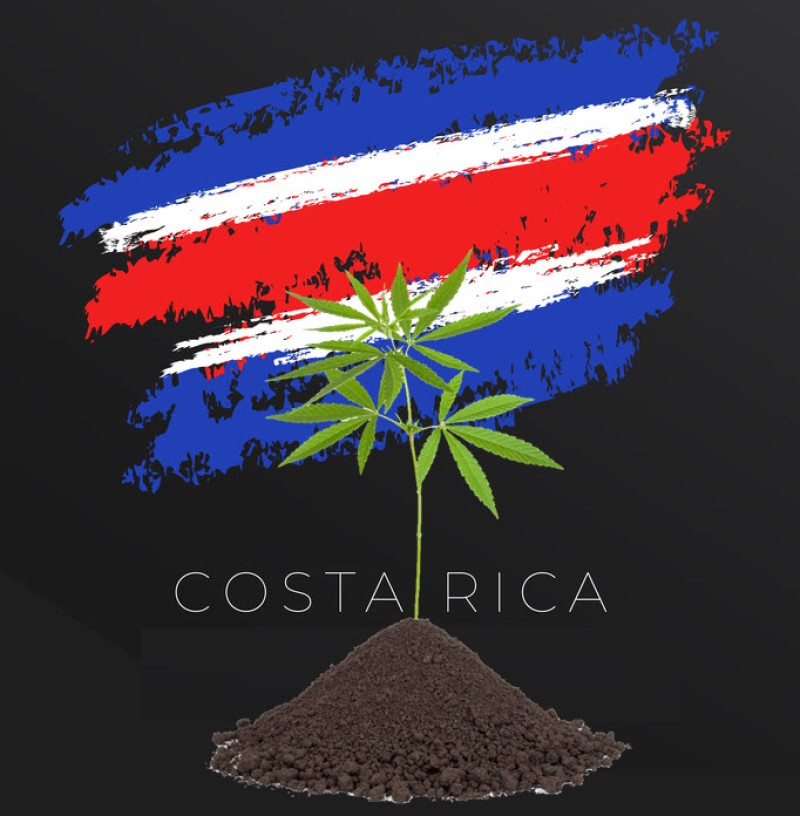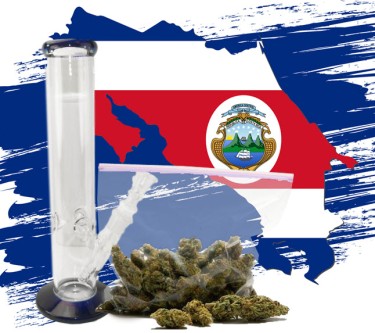
On November 28, 2024, the Costa Rican Constitutional Court, known as Sala IV, made a landmark ruling that has sent shockwaves through the nation and the broader Latin American region: it struck down a proposed referendum aimed at legalizing recreational cannabis. This decision not only halts the immediate efforts to bring recreational cannabis to the ballot but also raises critical questions about the future of cannabis legislation in a country that has seen significant strides in medical marijuana and hemp legislation. This article explores the implications of this ruling, the broader context of cannabis laws in Costa Rica, and what this means for future legislative efforts.
The Constitutional Court's Ruling
Legal Basis for the Decision
The ruling by Sala IV was grounded in constitutional law and international obligations. The court found that the proposed referendum, which sought to allow Costa Ricans to vote on legalizing recreational cannabis, was unconstitutional based on Article 7 of Costa Rica's Political Constitution. This article emphasizes that international treaties ratified by Costa Rica take precedence over domestic laws.
The court specifically cited conflicts with several key international agreements:
1. 1961 Single Convention on Narcotic Drugs: This treaty classifies cannabis as a controlled substance and restricts its use to medical and scientific purposes.
2. 1988 UN Convention Against Illicit Traffic in Narcotic Drugs: This agreement reinforces prohibitions against recreational use of drugs, including cannabis.
3. Vienna Convention on Psychotropic Substances: Like the previous treaties, this convention emphasizes restrictions on drug use and trafficking.
The court concluded that any attempt to legalize recreational cannabis through a referendum would violate these international obligations, thus rendering such a measure unconstitutional.
Background of the Proposed Referendum
The initiative for the referendum was led by Erick González Camacho, who sought to gather enough signatures to bring the issue before voters nationwide. The proposal aimed not only to legalize recreational cannabis but also to regulate its production and sale, similar to frameworks established in other countries that have embraced legalization.
The Supreme Electoral Tribunal (TSE) had initially referred González's request for a referendum to the Constitutional Chamber for review. However, the court's decision effectively blocks any progress of the bill through both the referendum mechanism and legislative approval without addressing these international conflicts.
The Broader Context of Cannabis Legislation in Costa Rica
While recreational cannabis remains illegal, Costa Rica has made significant strides in legalizing medical marijuana. In 2022, after extensive debate and advocacy from various sectors of society, Costa Rica legalized medical cannabis. This landmark decision allowed patients suffering from various ailments—including chronic pain, epilepsy, and cancer—to access therapeutic products derived from cannabis.
The legalization of medical marijuana marked a significant shift in public policy and social attitudes toward cannabis. It aligned Costa Rica with other Latin American countries that have recognized the medicinal benefits of cannabis while also providing a framework for regulation and oversight.
Moreover, Costa Rica has embraced industrial hemp cultivation as part of its agricultural strategy. The Ministry of Agriculture and Livestock (MAG) has issued numerous licenses for hemp production, signaling a growing acceptance of cannabis-related industries within regulated frameworks. Hemp is seen as a versatile crop with applications ranging from textiles to construction materials.
President Rodrigo Chaves' Stance
President Rodrigo Chaves has been an outspoken advocate for legalizing recreational cannabis as part of his broader strategy to combat crime and generate tax revenue. Chaves argues that regulating cannabis could provide safe access for consumers while cutting off profits to criminal networks that thrive on illegal drug trade.
In his administration's view, legalization could also yield significant economic benefits:
-
Tax Revenue: Legalizing recreational cannabis could generate substantial tax revenue that could be reinvested into public services such as healthcare and education.
-
Job Creation: A regulated cannabis market could create jobs across various sectors—from cultivation and retail to distribution and marketing.
-
Tourism: Legalization could attract tourists interested in experiencing a regulated cannabis market similar to those found in countries like Canada and certain U.S. states.
Despite these arguments, public opinion remains divided. Critics express concerns about potential increases in cannabis use among young people and emphasize adherence to international commitments as paramount. The ruling by Sala IV reflects these tensions between progressive policy initiatives and conservative legal frameworks.
Implications of the Court's Decision
The court's ruling signifies a substantial setback for advocates seeking to expand cannabis legalization in Costa Rica. It raises critical questions about how future legislation can navigate international obligations while addressing domestic desires for reform. For any new proposals to move forward, they would need to either align with existing treaties or involve a significant shift in Costa Rica's approach to its international commitments.
In light of this ruling, lawmakers may consider several strategies:
1. Amendment of International Treaties: One potential avenue is advocating for changes at an international level regarding how treaties classify cannabis. However, this is a long-term strategy that would require cooperation from multiple countries.
2. Focus on Medical Cannabis Expansion: Given the court’s acceptance of medical marijuana legislation, advocates may shift their focus toward expanding access to medical products rather than pursuing recreational legalization at this time.
3. Public Education Campaigns: Educating the public about the potential benefits of legalization may help shift public opinion over time, creating an environment more conducive to future legislative efforts.
Public Response and Ongoing Debate
The ruling has reignited discussions around cannabis policy in Costa Rica. Advocates like González remain hopeful for future changes despite this setback; they argue that public sentiment is shifting toward acceptance of recreational use as societal attitudes evolve.
On social media platforms and community forums, citizens are expressing their views—both pro and con—regarding the ruling:
-
Supporters of Legalization: Many advocates argue that prohibition has failed and that regulation is necessary for public health and safety reasons. They point out that legalizing recreational use could reduce crime rates associated with illegal drug trafficking.
-
Opponents: Critics express concerns about potential increases in drug use among young people and argue that legalization could send mixed messages about drug consumption norms.
This ongoing debate highlights the complexities surrounding drug policy reform in Costa Rica, a nation known for its progressive social policies yet bound by traditional views on drug use.
The Economic Implications of Cannabis Legislation
While opponents often cite health risks associated with increased drug use as reasons against legalization, proponents highlight several economic benefits:
1. Tax Revenue Generation: Legalizing recreational cannabis could lead to substantial tax revenues that could be allocated toward public services such as education, healthcare, infrastructure development, and drug prevention programs.
2. Job Creation: A regulated market would create numerous jobs across various sectors cultivation, distribution, retail sales and stimulate local economies.
3. Tourism Growth: Countries like Canada have seen increased tourism due to their legalized cannabis markets; Costa Rica could potentially capitalize on this trend by attracting tourists interested in exploring its regulated market.
4. Reduction in Law Enforcement Costs: Legalization may lead to decreased law enforcement costs associated with prosecuting non-violent drug offenses related to possession or use of small amounts of cannabis.
Challenges Facing Economic Arguments
Despite these potential benefits, there are challenges facing advocates who wish to frame legalization as an economic necessity:
-
Concerns Over Public Health: Opponents argue that increased access may lead to higher rates of substance abuse among vulnerable populations.
-
International Obligations: As noted earlier, adherence to international treaties complicates any movement toward legalization; failure to comply could result in diplomatic repercussions or sanctions from other nations or organizations.
The Role of International Treaties
Costa Rica’s obligations under international treaties significantly impact its domestic drug policies:
1. Single Convention on Narcotic Drugs (1961): This treaty aims to combat drug abuse by controlling narcotics through strict regulations; it classifies many substances—including cannabis—as controlled drugs.
2. UN Convention Against Illicit Traffic in Narcotic Drugs (1988): This treaty emphasizes collaboration among nations to combat drug trafficking while reinforcing prohibitions against certain substances’ recreational use.
3. Vienna Convention on Psychotropic Substances (1971): Similar in nature to previous treaties but focuses more specifically on psychotropic substances rather than narcotics alone.
These treaties create a framework within which countries must operate regarding drug policy; thus far, they have largely reinforced prohibitionist approaches globally.
The Need for Reform at an International Level
Advocates for reform argue that existing international treaties are outdated given evolving scientific understandings regarding cannabinoids’ therapeutic properties:
-
Many countries are beginning to recognize medicinal uses for cannabinoids; however, these advancements often clash with treaty obligations.
-
Reforming these treaties may require concerted efforts from multiple nations willing to advocate for changes based on emerging evidence supporting therapeutic benefits associated with various forms of cannabis consumption—both medicinally and recreationally.
Conclusion
Costa Rica is currently at a pivotal moment in its cannabis legislation following the Constitutional Court's recent ruling against a proposed referendum for recreational use. This decision highlights the intricate balance between international treaties and domestic reform aspirations, a challenge that many nations face in addressing drug policy. Despite advancements in medical marijuana access and industrial hemp cultivation, the issue of recreational cannabis remains contentious and fraught with legal hurdles. Advocates continue to push for change, fueled by hope that public education campaigns and potential legislative reforms will eventually lead to responsible regulation rather than the historical prohibitionist approaches prevalent in Latin America. Navigating this complex landscape will require lawmakers to engage thoughtfully with constituents, striving to create equitable policies that honor both national interests and international commitments as Costa Rica moves forward into an uncertain yet promising future regarding cannabis use.






